Airbus has set its sights on hydrogen propulsion, but it seems they still think that SAF (sustainable aviation fuels) have a role to play. And here’s why.
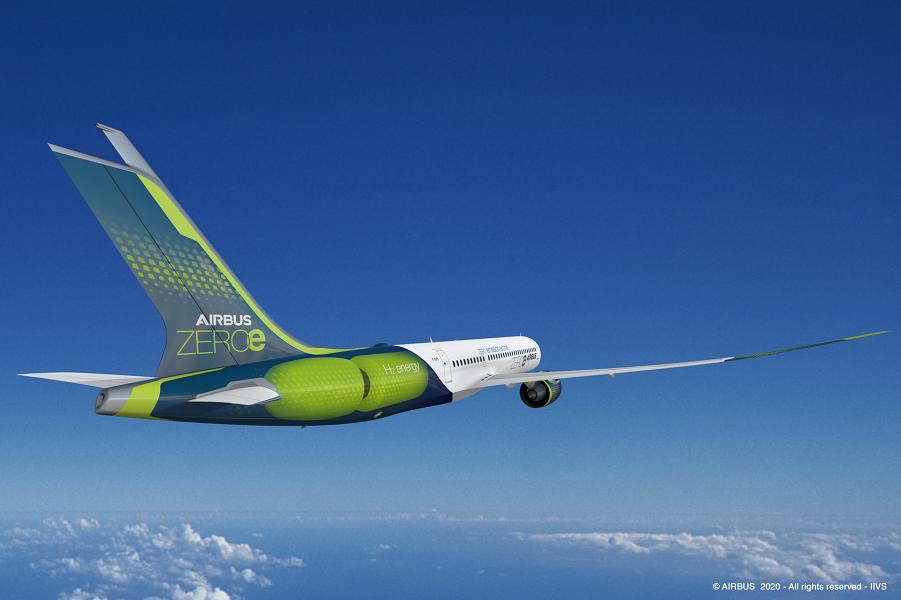
A few weeks ago, we saw a bit of a debate-by-proxy brewing, when Boeing announced their SAF plans. Boeing declared that all their aircraft (including existing ones) would be capable of burning 100% sustainable fuels by 2030. At the same time as committing to SAF, they distanced themselves from Airbus, eliminating the possibility of using hydrogen. More specifically, Boeing CEO David Calhoun said:
“I have a fair amount of experience with hydrogen, our company has an incredible amount of experience with hydrogen. At least in the size of airframe that we are all talking about. We experiment at the low end, but that’s not going to be a meaningful market here.
“And the advent of sustainable fuel already, already we’re capable of living with that sustainable fuel. I believe that’s going to be the 15-year answer to 2050 guidelines and approaches because we have all worked with it, experimented with it, we know it works, and now we have to develop a supply line for it. But I believe it’s the only answer between now and 2050.”
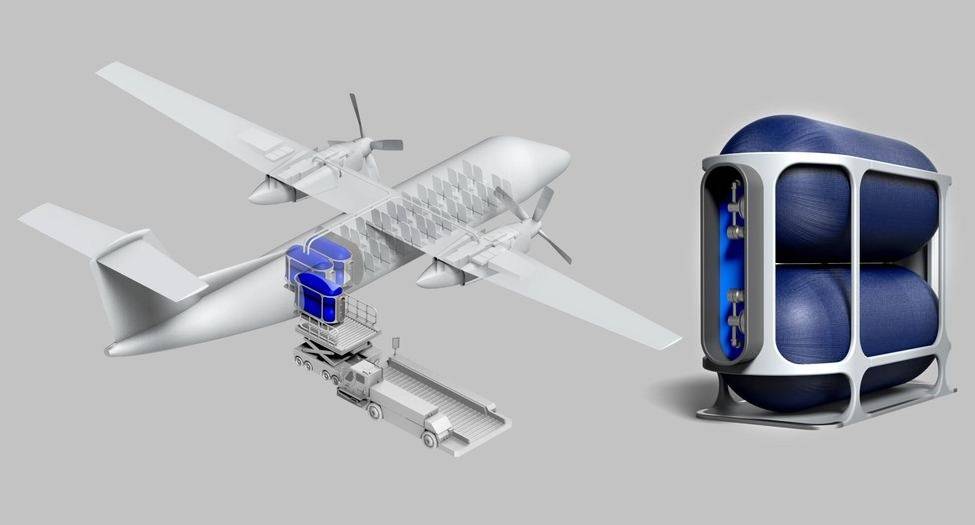
Airbus Holds Its Ground – But Likes SAF!
Three days later, Airbus reiterated its support for hydrogen, as the only practical means to achieve “true zero” emissions. However, in recent interviews, Airbus clarified that they definitely see a place for SAF in the future: long-haul. Talking with Bjorn Fehrm of Leeham News, Glenn Llewellyn, Airbus VP Zero Emission Aircraft, had this to say about SAF:
“SAF is very important for us as a complement to hydrogen. It’s the only alternative for the existing fleet and a future long-range aircraft. Our SAF support has drowned in the interest in our hydrogen work. But hydrogen is one part of the solution, SAF is the other. Hydrogen is the solution for regional and intra-continental traffic as it has better operating economics. For long-range aircraft, the volume demands of hydrogen make SAF the only carbon-free alternative.”
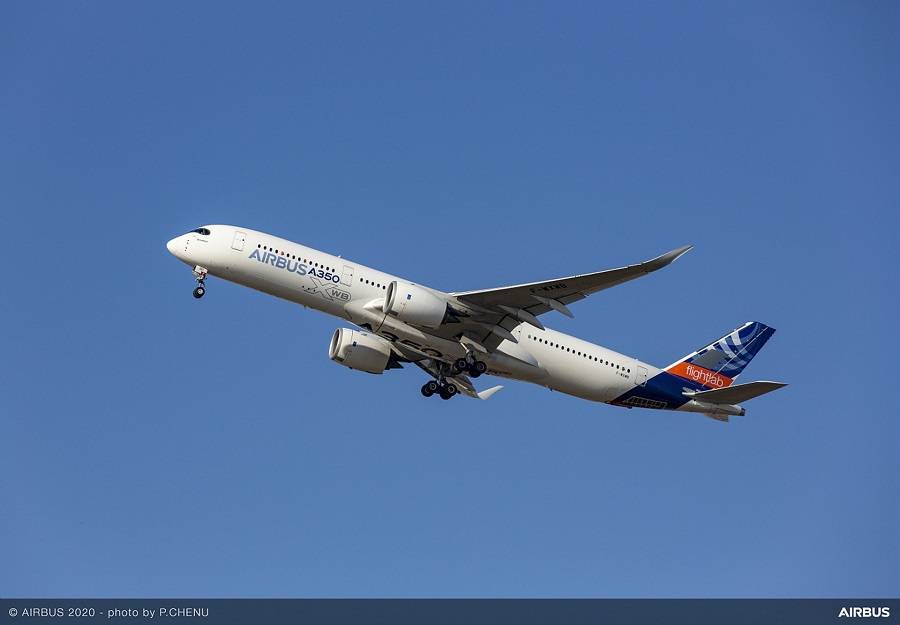
Today Airbus announced what seems to be a step towards this move to SAF. And appropriately, it involves a long-haul jet, in the shape of the A350-900. Airbus will work with DLR in Germany, Rolls-Royce and Neste, a SAF producer. Their ‘Emission and Climate Impact of Alternative Fuels’ program, will run the A350 with 100% SAF. The aim of the program is to study the effects this will have, on emissions and performance.
At the moment, SAF can only be up to 50% of the fuel that a Boeing, Airbus or other airliner can use. Boeing has already tested a 787 with 100% SAF. To allow commercial operations, aircraft and engine manufacturers must ensure that there are no ill-effects to those engines and related systems. This will require plenty of testing and other efforts for certification. But it should be a manageable target for 2030, like Boeing wants. Tests already started this week, in Toulouse, France.
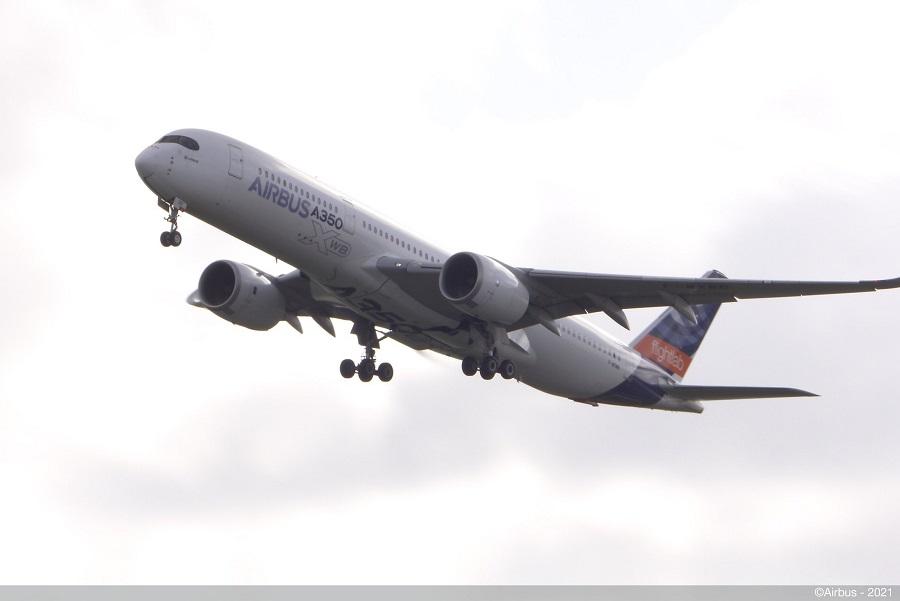
Cost of SAF, Vs Hydrogen Supply And Handling
It will be interesting to see what changes might be necessary, to allow use of 100% SAF in the fleet. However the real challenge with these fuels lies elsewhere: in the supply chain. Making Airbus and Boeing jets safe with 100% SAF, is one thing. Getting enough of this fuel out there, at the right price, is another. There is already some skepticism in this regard. Even with a considerable ramp-up in production, SAF will always be significantly pricier than regular jet fuel.
The previous sentence is NOT the opinion of a critic. It is a statement by Thorsten Lange, Executive VP of Neste, the SAF producer partnering Airbus for these A350 flights. At the moment the cost is three to five times higher. And this explains why Airbus doesn’t want to commit solely to SAF, as a long-term goal. Barring a breakthrough in SAF production, hydrogen, despite its logistical and development challenges, will have a vital role in aviation. This is why, as we saw, Airbus is working on its ZEROe program, looking at different kinds of hydrogen propulsion. And at the same time, they are looking at hydrogen infrastructure at airports.
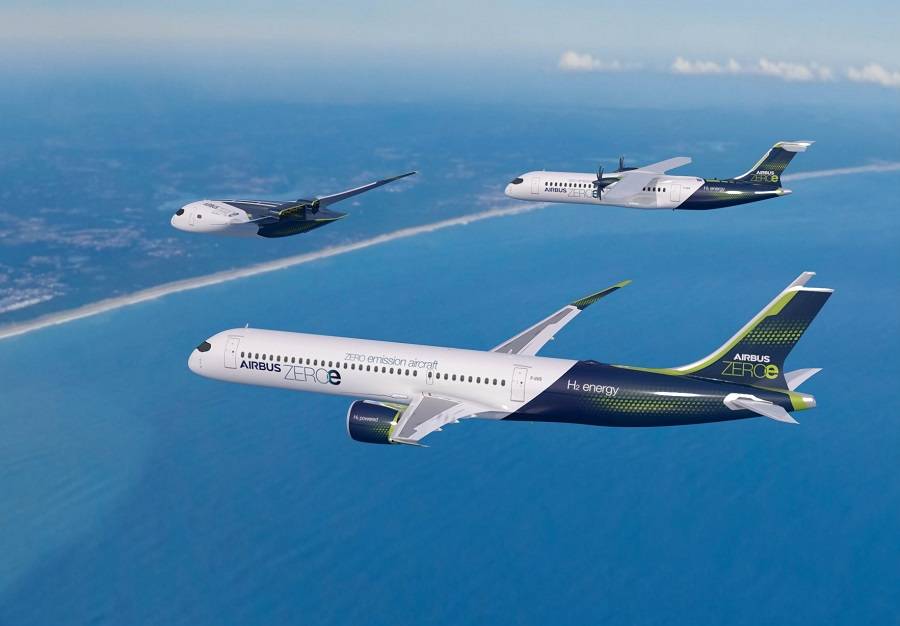
So Airbus are hoping for the development of a broader hydrogen ecosystem, that aviation can be part of. This would drive the development of fuel cells and related technologies. But crucially, it would also help create a suitable logistical infrastructure, for handling and storage.
Meanwhile, Airbus is also aware of an intriguing prospect, for a SAF-related ecosystem, that could offer supplemental benefits, beyond aviation. But that one deserves its own article..!




1 comment
Andre T
Major drfference between Boeing and Airbus is Airbus got government money as part of COVID relief with stipulation to develop hydrogen aircraft. Hence Airbus’s dog and pony show with Hydrogen. Boeing doesn’t and they are straight up SAF is the more practical path. They probably had engineers from their Delta V rocket which is a cryo hydrogen rocket program, come over and tell aircraft side you are crazy to use cryo hhydrogen.
As sceptical that I am of hydrogen, I have back pedaled a bit to believe pressurized hydrogen fuel cells electric is plausible for regional aircraft. But for A320 and B737 size, that is to be determined. I believe it will be SAF. If SAFs remain as acceptable environmental solution, it most likely will win out even down to regional. It is easier to handle, easier to store, no special technology to use. It’s all about making it affordable that is the challenge.